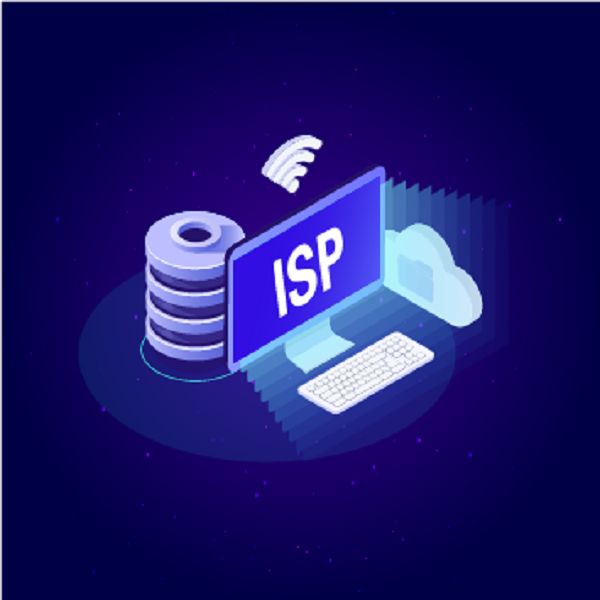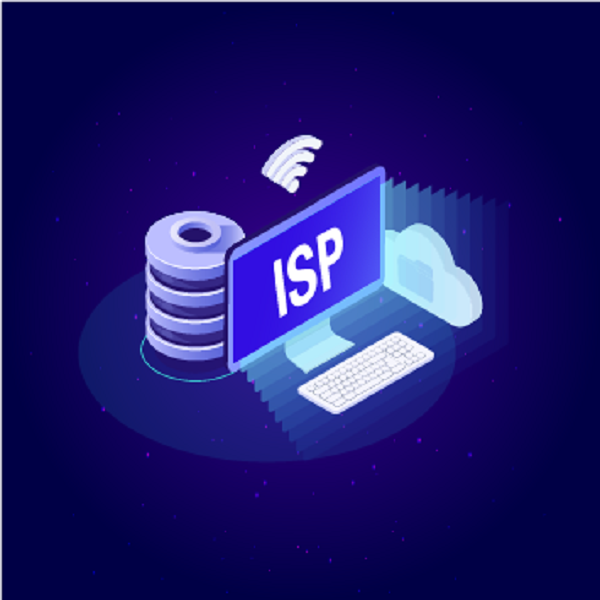Residential Proxies
Allowlisted 200M+ IPs from real ISP. Managed/obtained proxies via dashboard.

Proxies Services
Residential Proxies
Allowlisted 200M+ IPs from real ISP. Managed/obtained proxies via dashboard.
Residential (Socks5) Proxies
Over 200 million real IPs in 190+ locations,
Unlimited Residential Proxies
Unlimited use of IP and Traffic, AI Intelligent Rotating Residential Proxies
Static Residential proxies
Long-lasting dedicated proxy, non-rotating residential proxy
Dedicated Datacenter Proxies
Use stable, fast, and furious 700K+ datacenter IPs worldwide.
Mobile Proxies
Dive into a 10M+ ethically-sourced mobile lP pool with 160+ locations and 700+ ASNs.
Scrapers
Collection of public structured data from all websites
Proxies
Residential Proxies
Allowlisted 200M+ IPs from real ISP. Managed/obtained proxies via dashboard.
Starts from
$0.6/ GB
Residential (Socks5) Proxies
Over 200 million real IPs in 190+ locations,
Starts from
$0.03/ IP
Unlimited Residential Proxies
Unlimited use of IP and Traffic, AI Intelligent Rotating Residential Proxies
Starts from
$1816/ MONTH
Static Residential proxies
Long-lasting dedicated proxy, non-rotating residential proxy
Starts from
$4.5/MONTH
Dedicated Datacenter Proxies
Use stable, fast, and furious 700K+ datacenter IPs worldwide.
Starts from
$4.5/MONTH
Mobile Proxies
Allowlisted 200M+ IPs from real ISP. Managed/obtained proxies via dashboard.
Starts from
$1.2/ GB
Scrapers
Web Unblocker
Simulate real user behavior to over-come anti-bot detection
Starts from
$1.2/GB
Serp API
Get real-time search engine data With SERP API
Starts from
$0.3/1K results
Scraping Browser
Scale scraping browsers with built-inunblocking and hosting
Starts from
$2.5/GB
Documentation
All features, parameters, and integration details, backed by code samples in every coding language.
TOOLS
Resources
Addons
ABCProxy Extension for Chrome
Free Chrome proxy manager extension that works with any proxy provider.
ABCProxy Extension for Firefox
Free Firefox proxy manager extension that works with any proxy provider.
Proxy Manager
Manage all proxies using APM interface
Proxy Checker
Free online proxy checker analyzing health, type, and country.
Proxies
AI Developmen
Acquire large-scale multimodal web data for machine learning
Sales & E-commerce
Collect pricing data on every product acrossthe web to get and maintain a competitive advantage
Threat Intelligence
Get real-time data and access multiple geo-locations around the world.
Copyright Infringement Monitoring
Find and gather all the evidence to stop copyright infringements.
Social Media for Marketing
Dominate your industry space on social media with smarter campaigns, anticipate the next big trends
Travel Fare Aggregation
Get real-time data and access multiple geo-locations around the world.
By Use Case
English
繁體中文
Русский
Indonesia
Português
Español
بالعربية


This article analyzes the technical principles and application scenarios of skipping SSL certificate verification in the curl command, discusses how proxy IP can improve the efficiency of HTTPS requests, and introduces the technical adaptation solution of abcproxy in secure communication.
What is curl ignore cert?
curl ignore cert means to skip the SSL/TLS certificate verification process by adding the --insecure or -k parameter when using the curl tool to initiate an HTTPS request. This behavior is often used to avoid certificate errors in test environments or specific scenarios, but it may reduce communication security. As a global proxy service brand, abcproxy provides developers with a more flexible security verification solution by deeply optimizing the certificate compatibility of proxy nodes.
What is the technical principle of skipping certificate verification?
The SSL/TLS protocol requires the client to verify the legitimacy of the server certificate, including the signature of the issuing authority, validity period, domain name matching, etc. When using curl --insecure, the client will actively close the certificate chain verification link and directly establish an encrypted connection. This operation essentially sacrifices some security in exchange for a connection success rate, such as quickly debugging an API interface during development and testing, or accessing an internal system that uses a self-signed certificate.
Technically, curl will ignore the following verification steps:
Whether the certificate is issued by a trusted authority
Does the certificate domain name match the request address?
Is the certificate within the validity period?
Why do you need to use curl ignore cert in conjunction with the proxy IP?
In real business scenarios, skipping certificate verification is often used together with proxy IP technology:
Test environment isolation: When an enterprise uses a proxy IP to direct test traffic to an isolated environment, a self-signed certificate may cause curl to report an error, and verification needs to be temporarily disabled.
Crawler data collection: When the target website certificate configuration is abnormal, the proxy IP needs to maintain the request success rate. At this time, dynamic IP switching and ignoring certificates can work together to break through the restrictions.
Cross-border API debugging: Network censorship in some regions may interfere with certificate chain verification. Static ISP proxy can provide stable regional export IP
It should be noted that skipping verification for a long time may lead to the risk of man-in-the-middle attacks. abcproxy's residential proxy product has a built-in certificate whitelist mechanism, which automatically filters high-risk nodes while ensuring the connection success rate.
How does abcproxy optimize the HTTPS request process?
To solve the common pain point of curl ignore cert, abcproxy provides three levels of technical support:
Certificate compatibility enhancement
The proxy node is pre-installed with mainstream CA root certificates, and supports TLS 1.3 protocol and SNI extension. When the user uses the -k parameter due to certificate problems, the system automatically matches available IP resources to reduce the probability of certificate error triggering.
Intelligent traffic routing
Dynamically allocate residential proxies or data center proxies based on the protocol type (HTTP/HTTPS) in the user request header. For example, when processing HTTPS requests that require verification, nodes that support ECC certificates are prioritized to increase handshake speed.
Safety audit system
Monitor the certificate status of proxy nodes in real time, automatically block IPs with expired certificates and weak encryption algorithms, and generate risk operation warning reports based on user historical operation logs.
How to choose the proxy type that is compatible with curl ignore cert?
Different proxy IP types have significant differences in their impact on HTTPS requests:
Residential proxy: suitable for scenarios where you need to simulate real browser fingerprints, and can bypass security protection such as Cloudflare
Static ISP proxy: provides fixed IP and long-term stable TLS session, suitable for continuous debugging tasks
Socks5 proxy: supports layer 4 protocol forwarding, avoids application layer interference, and has the best compatibility with curl tool
Unlimited residential proxy: Break through traffic restrictions, suitable for automated scripts that require high-frequency retry of certificate error requests
When choosing, you need to evaluate the protection level of the target server. For example, when accessing a website with HSTS enabled, it is recommended to use a data center proxy that supports the latest TLS protocol instead of simply relying on the --insecure parameter.
How will HTTPS request technology evolve in the future?
With the popularization of the QUIC protocol and the implementation of post-quantum encryption algorithms, the traditional certificate verification mechanism may face reconstruction. The automated certificate management (ACM) system will integrate proxy services more deeply to achieve a closed-loop process of certificate issuance, rotation, and verification. The promotion of zero-trust architecture requires proxy technology to balance the contradiction between security and efficiency.
As a professional proxy IP service provider, abcproxy provides a variety of high-quality proxy IP products, including residential proxy, data center proxy, static ISP proxy, Socks5 proxy, unlimited residential proxy, suitable for web acquisition, e-commerce, market research, social media marketing, website testing, public opinion monitoring, advertising verification, brand protection, travel information aggregation and other application scenarios. If you are looking for a reliable proxy IP service, welcome to visit the abcproxy official website for more details.
Featured Posts
Popular Products
Residential Proxies
Allowlisted 200M+ IPs from real ISP. Managed/obtained proxies via dashboard.
Residential (Socks5) Proxies
Over 200 million real IPs in 190+ locations,
Unlimited Residential Proxies
Use stable, fast, and furious 700K+ datacenter IPs worldwide.
Residential (Socks5) Proxies
Long-lasting dedicated proxy, non-rotating residential proxy
Dedicated Datacenter Proxies
Use stable, fast, and furious 700K+ datacenter IPs worldwide.
Web Unblocker
View content as a real user with the help of ABC proxy's dynamic fingerprinting technology.
Related articles

What Are Proxies for Bots? Why do robots need proxy IPs
This article analyzes the core role of proxy IP in robot operation, including improving efficiency, avoiding restrictions and ensuring stability, and explores how abcproxy meets robot proxy needs through diversified products.

How to truly understand the meaning of Limit IP Address Tracking
In-depth analysis of the technical logic and practical value of limiting IP address tracking, and explore the key role of proxy services in anonymous access and data security.

How to choose between Twitter Proxy and abcproxy
This article compares the core differences between Twitter Proxy and abcproxy, analyzes their performance in technical architecture, application scenarios and stability, and helps users choose the best proxy solution according to their needs.